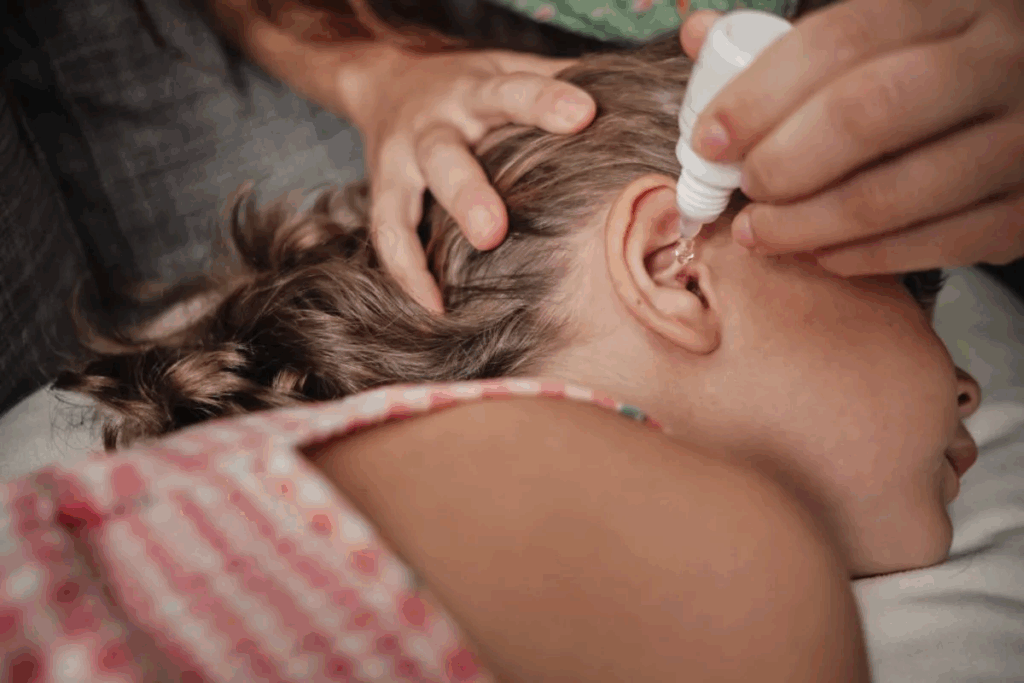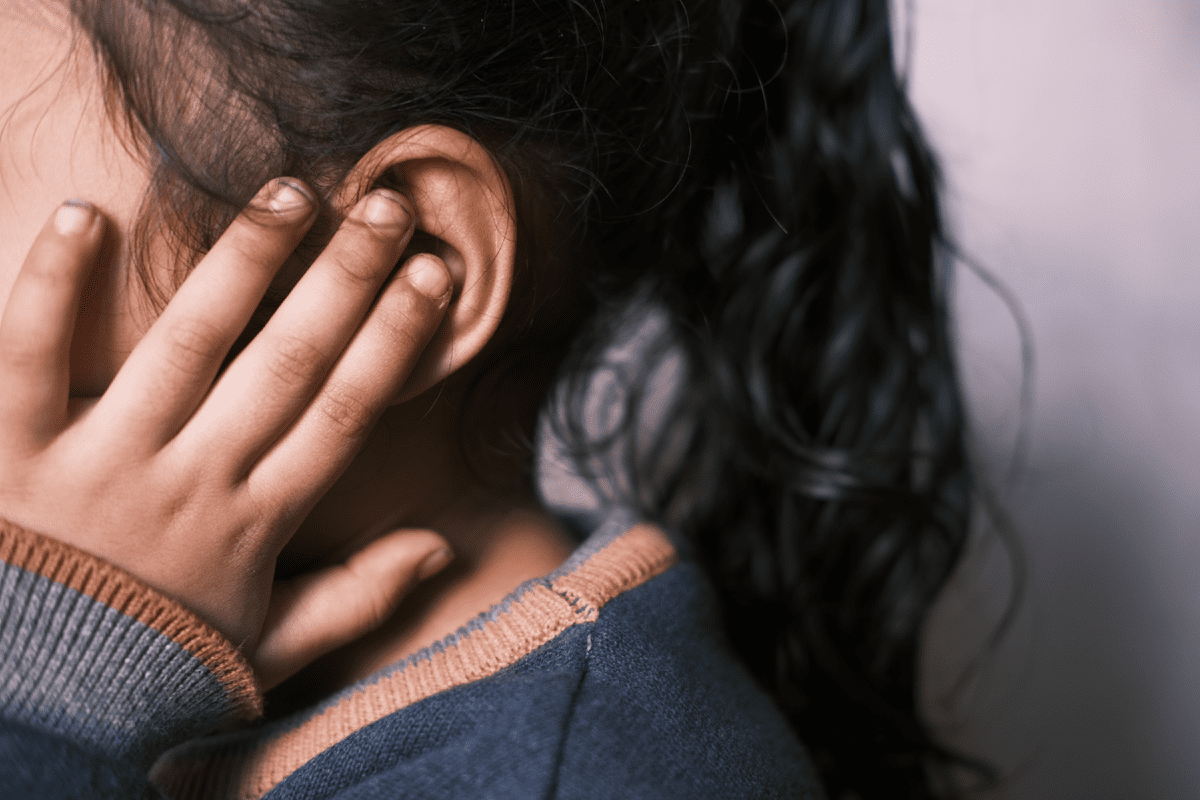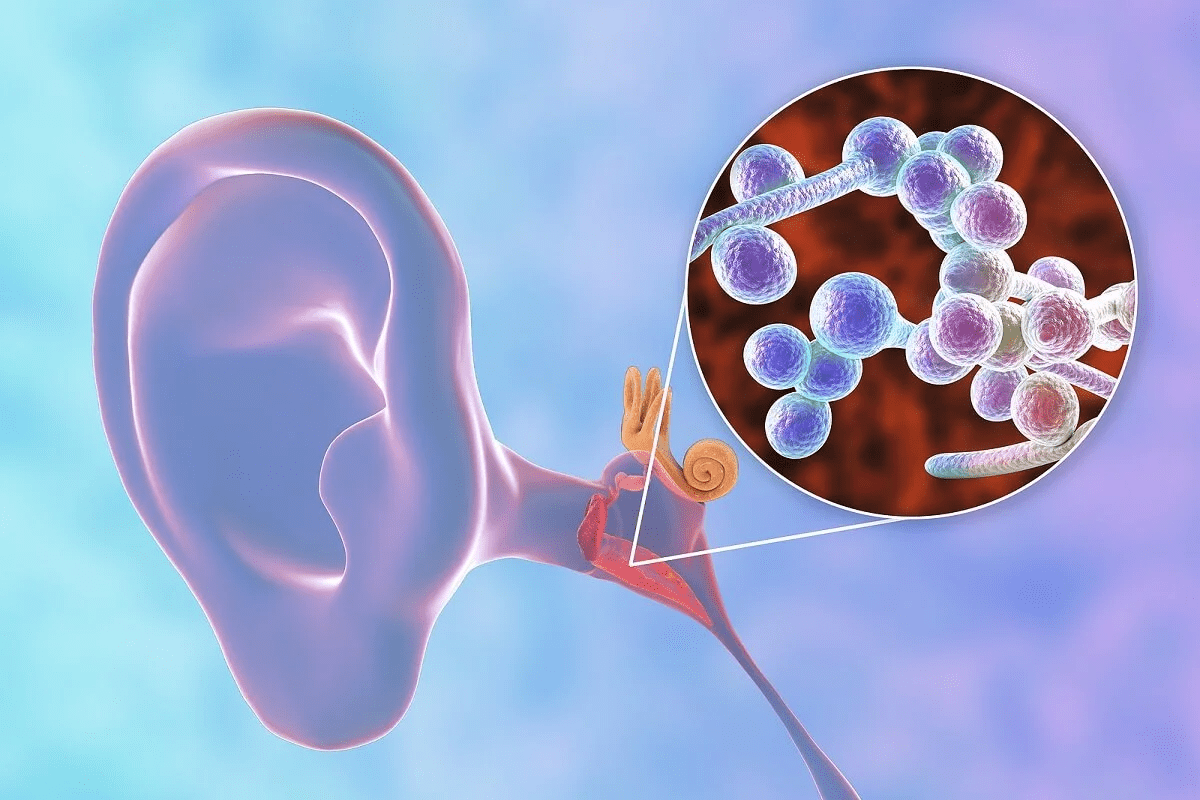
Do you hear a ringing in your ears and feel pain? You’re not alone. Millions face the challenge of tinnitus and ear pain worldwide. Many doctors don’t fully understand this connection.
At Liv Hospital, we focus on you. We aim to find out if tinnitus is causing your ear pain. Or if there’s something else that needs urgent care.
Studies show tinnitus can link to pain in several ways. We’ll dive into how tinnitus might cause or add to ear pain.
Can tinnitus earache pain occur together? Tinnitus rarely causes pain, but the underlying condition (e.g., infection) can cause both.
Key Takeaways
- Understanding the link between tinnitus and ear pain is key for the right treatment.
- Tinnitus affects about 10-15 percent of the world’s population.
- There are several reasons why tinnitus might lead to ear pain.
- Liv Hospital offers a detailed plan to diagnose and treat tinnitus and ear pain.
- A tailored treatment can greatly improve life for those with tinnitus and ear pain.
What is Tinnitus? Understanding the Phantom Sounds

Tinnitus is when you hear sounds that aren’t there. It can sound like ringing, buzzing, or humming. It often happens with hearing loss or ear problems.
Definition and Types of Tinnitus
Tinnitus is a symptom, not a disease. It can be subjective, only heard by the person, or objective, heard by others too. Tinnitus types vary by how long it lasts and its pitch:
- Acute tinnitus: Short-lived, often from earwax or infections.
- Chronic tinnitus: Lasts a long time, linked to hearing loss or health issues.
- Pulsatile tinnitus: Sounds like your heartbeat, often from blood vessel problems.
Prevalence and Global Impact
Tinnitus is common worldwide. About 10-15% of adults globally have tinnitus. It gets more common with age, and hearing loss increases the risk.
The cost of tinnitus is high. It affects healthcare, work, and family life. Knowing how widespread tinnitus is helps us find better ways to help those affected.
The Relationship Between Tinnitus and Ear Pain

It’s important to understand how tinnitus and ear pain are connected. This knowledge helps in finding better treatments for those with both issues. Research shows that tinnitus and ear pain often go together, affecting about one-third of people with ear pain.
Statistical Correlation
Studies have found a strong link between tinnitus and ear pain. This shows a complex relationship between the two. Data analysis shows that people with tinnitus are more likely to have ear pain, and vice versa.
Condition | Percentage of Patients Experiencing Ear Pain | Percentage of Patients Experiencing Tinnitus |
Tinnitus | 35% | 100% |
Ear Pain | 100% | 30% |
The table shows how tinnitus and ear pain are connected. It highlights how common both are in patients.
Is Tinnitus Itself Painful?
Tinnitus isn’t painful by itself. But it can make people uncomfortable and worsen pain. Many things can affect how people feel tinnitus, like stress and other health issues.
Even though tinnitus isn’t painful, it can greatly affect a person’s life. The emotional and mental strain of tinnitus can increase stress. This stress can make pain feel worse.
The connection between tinnitus and ear pain is complex. It involves both physical and mental factors. By understanding this, doctors can create better treatments for both conditions at the same time.
Neurological Mechanisms Behind Tinnitus Earache Pain
Recent studies have uncovered the brain’s role in tinnitus and ear pain. They show how different brain areas work together. This is key to understanding why some people feel both tinnitus and ear pain at the same time.
Shared Neural Pathways in the Brain
The brain handles sound and pain through connected paths. Research found that tinnitus and pain processing share the same neural circuits. This can make people with tinnitus more likely to feel ear pain.
Key areas of the brain involved in this process include:
- The auditory cortex, which processes sound information
- The somatosensory cortex, which is involved in pain perception
- The limbic system, which plays a role in emotional processing
The Role of the Limbic System
The limbic system is key in how we feel about tinnitus. It affects emotions, motivation, and memory. These factors can change how we experience tinnitus and ear pain.
The emotional distress from tinnitus can make pain more sensitive. This creates a cycle where tinnitus and ear pain feed into each other. Knowing this is important for finding better treatments for both symptoms.
By studying the brain’s role in tinnitus and ear pain, we can understand their complex link. This knowledge helps us find better ways to manage and treat these symptoms together.
Common Causes of Both Tinnitus and Ear Pain
Tinnitus and ear pain can come from many sources. These include infections, hearing loss, and nerve damage. Knowing what causes these issues helps in finding the right treatments.
Ear Infections and Inflammation
Ear infections often cause tinnitus and ear pain, more so in kids. An infection can lead to inflammation. This inflammation can hurt and affect hearing, causing tinnitus. It can happen in the outer, middle, or inner ear, each with its own effects.
Here are some important points about ear infections and inflammation:
- Outer ear infections (otitis externa) can cause pain and discomfort, potentially leading to tinnitus.
- Middle ear infections can result in fluid buildup, affecting hearing and causing tinnitus.
- Inner ear infections can damage the structures responsible for hearing and balance, leading to both tinnitus and ear pain.
Hearing Loss Connections
Hearing loss, whether from age or noise, can lead to tinnitus and ear pain. When we lose hearing, our brain might make up sounds, which we hear as tinnitus. Hearing loss can also cause ear pain, if the cause is something that hurts.
Here are the connections between hearing loss and these symptoms:
- Age-related hearing loss can lead to tinnitus as the brain compensates for the loss of auditory input.
- Noise-induced hearing loss is a common cause of tinnitus, often accompanied by ear pain after exposure to loud noises.
- Other forms of hearing loss, such as those due to otosclerosis or Meniere’s disease, can also result in tinnitus and ear pain.
Auditory Nerve Damage
Damage to the auditory nerve can cause tinnitus and ear pain. This nerve carries sound signals from the ear to the brain. Damage can send abnormal signals, which we hear as tinnitus. It can also cause pain, possibly because of how the nerve interacts with other nerves.
Some causes of auditory nerve damage include:
- Trauma to the head or ear
- Viral infections affecting the auditory nerve
- Certain medical conditions that impact the nerve
The TMJ-Tinnitus Connection: A Significant Link
The TMJ is close to the ear and shares nerve paths. This makes TMJ problems a big deal for tinnitus and ear pain. We’ll look into how this affects diagnosis and treatment.
Triggering Symptoms
TMJ issues are a big deal, with 60 percent of people with TMJ problems getting tinnitus. This shows how important TMJ disorders are in diagnosing tinnitus and ear pain.
The ways TMJ disorders cause tinnitus and ear pain are complex. Shared neural pathways between the TMJ and ear explain why jaw problems can lead to ear symptoms.
Anatomical Factors
The TMJs are near the ears, which is key. This closeness, along with shared nerve paths, makes TMJ disorders a likely cause of tinnitus and ear pain.
Knowing these anatomical details is key for good treatment plans. By fixing TMJ issues, doctors can help with both tinnitus and ear pain.
Effective management of TMJ disorders needs a team effort. This includes dental, ENT, and sometimes neurological checks to tackle the complex link between TMJ, tinnitus, and ear pain.
Medications That Can Trigger Tinnitus and Pain
Some medicines can make tinnitus and ear pain worse. Tinnitus is when you hear sounds that aren’t there. It can get worse with certain drugs. Ear pain is also a side effect of some medicines, making things harder for people with tinnitus.
Common Ototoxic Medications
Ototoxic medicines harm the ear, leading to tinnitus and sometimes ear pain. These include:
- Certain antibiotics, such as gentamicin and tobramycin, which can cause ototoxicity, mostly with high doses or long use.
- Chemotherapy drugs, like cisplatin, known for their ototoxic effects.
- Loop diuretics, such as furosemide, which can cause ototoxicity, mainly when given intravenously at high doses.
- Nonsteroidal anti-inflammatory drugs (NSAIDs), including aspirin, which can cause tinnitus, more so at high doses.
It’s important for patients to know about these side effects and talk to their doctor about them.
Managing Medication-Induced Symptoms
Dealing with tinnitus and ear pain from medicines needs a few steps. First, find out which medicine is causing the problem and change it if you can. Sometimes, just taking less of the medicine helps.
Medication Type | Potential Side Effects | Management Strategies |
Antibiotics (e.g., gentamicin) | Tinnitus, hearing loss | Monitor renal function, adjust dosage |
Chemotherapy (e.g., cisplatin) | Tinnitus, hearing loss | Consider alternative chemotherapy agents |
Loop diuretics (e.g., furosemide) | Tinnitus, hearing loss | Administer slowly, monitor hearing |
NSAIDs (e.g., aspirin) | Tinnitus | Reduce dosage, consider alternative pain relief |
People with tinnitus and ear pain from medicines should work with their doctor to manage these symptoms. Knowing the side effects of medicines and taking action can help reduce tinnitus and ear pain’s impact on life.
Physical Trauma and Its Dual Effects
Physical injuries, like those to the head and neck, can cause tinnitus and ear pain. These injuries can harm the ear and related structures. This leads to these symptoms.
Head and Neck Injuries
Head and neck injuries can seriously affect our hearing. The ear and the temporomandibular joint (TMJ) are closely connected. Damage to this area can lead to tinnitus and ear pain.
A study in the Journal of Oral and Maxillofacial Surgery found a link. It showed that TMJ disorders often cause tinnitus.
Key effects of head and neck injuries on tinnitus and ear pain:
- Damage to the auditory nerve
- Disruption of the TMJ
- Inflammation and irritation of the ear structures
A specialist said, “Trauma to the head or neck can result in complex symptoms. This is because the auditory and musculoskeletal systems are connected.”
“The relationship between head and neck trauma and the development of tinnitus and ear pain is well-documented. This highlights the need for thorough evaluation and treatment.”
Acoustic Trauma
Acoustic trauma, caused by loud noises, is another common cause. The intense sound can damage the hair cells in the inner ear. This leads to tinnitus and ear pain.
For example, not wearing ear protection at concerts or being near explosive sounds can cause it.
Cause | Symptoms | Prevention |
Acoustic Trauma | Tinnitus, Ear Pain, Hearing Loss | Ear Protection (e.g., earplugs) |
Head and Neck Injuries | Tinnitus, Ear Pain, TMJ Disorders | Proper Head and Neck Support, Safety Gear |
If you have ongoing tinnitus or ear pain after trauma, see a doctor. A healthcare professional can evaluate you fully. They can then suggest the right treatment.
Psychological Aspects of Tinnitus and Pain Perception
Tinnitus can deeply affect people, often making pain worse. Understanding how tinnitus, pain, and mind factors work together is key.
The Stress-Tinnitus-Pain Cycle
Stress plays a big role in tinnitus. The constant sounds can make stress worse, which in turn makes pain more sensitive. This cycle is hard to break.
Breaking this cycle is key to managing tinnitus and pain. Mindfulness, relaxation, and CBT can help reduce stress and ease tinnitus and pain.
Anxiety and Depression Connections
Anxiety and depression often go hand in hand with tinnitus. Tinnitus can cause anxiety, and pain from tinnitus can lead to depression. It’s important to tackle these mental health issues.
The table below shows how psychological factors affect tinnitus and pain.
Psychological Factor | Impact on Tinnitus | Impact on Pain Perception |
Stress | Increases tinnitus severity | Heightens pain sensitivity |
Anxiety | Worsens tinnitus distress | Contributes to increased pain perception |
Depression | Can exacerbate tinnitus symptoms | Associated with increased pain sensitivity |
Healthcare providers can create better treatment plans by understanding the links between tinnitus, pain, and the mind.
Diagnosing the Source of Tinnitus and Ear Pain
Figuring out what causes tinnitus and ear pain takes a detailed approach. It’s key to find the right treatment. This means doctors can spot the real problem and fix it.
Comprehensive Medical Evaluation
Starting with a full medical check-up is the first step. We look at your past health, like ear infections or hearing loss. We also check your ears, head, and neck for any issues.
We check your overall health too. We look for things like loud noises, earwax, TMJ problems, or certain medicines that might cause trouble.
Specialized Diagnostic Tests
After the initial check-up, we might need more tests. These help us find out what’s really going on. Tests might include:
- Audiological tests: To see how well you hear and if there’s any loss.
- Tympanometry: To check how your middle ear is working.
- Imaging studies: Like MRI or CT scans, to see inside your ear and head.
These tests help us understand tinnitus and ear pain better. This way, we can make a plan to fix the problem.
By using both a detailed medical check-up and special tests, we can find the cause. Then, we make a treatment plan just for you.
Treatment Approaches for Combined Symptoms
Managing tinnitus and ear pain often needs a mix of treatments. Each person’s experience is different, so we tailor our plans to fit each patient.
Medical Interventions
Medical treatments are key in fixing the root causes of tinnitus and ear pain. These can include:
- Antibiotics or antiviral meds for infections
- Anti-inflammatory drugs to lessen swelling and pain
- Medicines for conditions like Meniere’s disease
Sometimes, surgery is needed to fix TMJ problems or remove tumors causing symptoms.
Sound Therapy and Tinnitus Retraining
Sound therapy is a gentle way to help tinnitus sufferers. It uses sounds to help the brain get used to the tinnitus. Tinnitus retraining therapy (TRT) adds counseling to make tinnitus seem less bothersome.
We use the latest sound therapy methods, including:
- White noise therapy
- Custom sound therapy programs
- Notched therapy to lessen tinnitus
Emerging Therapies and Research
New treatments and technologies are always coming in tinnitus and ear pain care. Some new options include:
Therapy | Description | Potential Benefits |
Transcranial Magnetic Stimulation (TMS) | A non-invasive method that uses magnetic fields to stimulate brain areas for tinnitus | Potential to lessen tinnitus severity |
Cognitive Behavioral Therapy (CBT) | A psychological method to change how patients see tinnitus and its distress | Can improve life quality and reduce distress from tinnitus |
Bimodal Stimulation | A therapy that mixes sound with electrical stimulation to reduce tinnitus | Could lead to significant tinnitus reduction |
We keep up with new research to offer our patients the best and latest treatments.
When to Seek Medical Help
Tinnitus and ear pain can be very distressing. It’s important to know when to get medical help. Some cases need self-care, but others need a doctor’s attention right away.
Warning Signs That Require Immediate Attention
If you notice any of these symptoms, get medical help fast:
- Sudden hearing loss or a big change in hearing
- Severe ear pain that won’t go away
- Dizziness or vertigo with nausea or vomiting
- Tinnitus that pulsates with your heartbeat
- Discharge or bleeding from the ear
These signs might mean you have a serious condition. For example, sudden hearing loss is a medical emergency. It needs quick treatment.
Finding the Right Specialist
When you need help for tinnitus and ear pain, find the right doctor. Start with:
- An Ear, Nose, and Throat (ENT) specialist for ear issues
- A neurologist for neurological problems
- A primary care physician for a general check-up and referrals
Here’s a quick guide to specialists you might see:
Specialist | Area of Expertise |
ENT Specialist | Ear-related conditions, including tinnitus and hearing loss |
Neurologist | Neurological conditions that might cause or contribute to tinnitus and ear pain |
Primary Care Physician | General health evaluation and referral to specialists |
Knowing when to get medical help and finding the right specialist is key. It’s the first step to managing tinnitus and ear pain well.
Conclusion: Living Well Despite Tinnitus and Ear Pain
Living with tinnitus and ear pain can be tough. But, with the right approach, people can greatly improve their lives. There are many ways to manage these symptoms.
Understanding the connection between tinnitus and ear pain is key. This means tackling issues like ear infections and hearing loss. Treatments like sound therapy can help a lot.
If you’re dealing with tinnitus and ear pain, don’t hesitate to get medical help. Finding the right doctor and getting a thorough check-up is important. This can lead to a treatment plan that works for you.
Managing tinnitus and ear pain needs a mix of medical care and lifestyle changes. By using treatments and making healthy choices, you can live well despite these challenges.
FAQ
Can tinnitus cause ear pain?
Tinnitus itself isn’t usually painful. But, it can cause ear pain in some people. The link between tinnitus and ear pain is complex, with many factors involved.
Is tinnitus painful?
Tinnitus isn’t inherently painful. But, it can cause discomfort or pain in some cases. The distress from tinnitus can lead to anxiety and stress, which may cause pain.
What are the common causes of tinnitus and ear pain?
Causes include ear infections, hearing loss, and damage to the auditory nerve. TMJ disorders and physical trauma like head injuries also play a role.
Can certain medications trigger or worsen tinnitus and ear pain?
Yes, some medications, like ototoxic ones, can make tinnitus and ear pain worse. It’s important to manage symptoms caused by these drugs.
How are tinnitus and ear pain diagnosed?
Doctors use a detailed medical evaluation and special tests to find the cause. This helps identify the underlying issues.
What treatment approaches are available for managing combined symptoms of tinnitus and ear pain?
Treatments include medical care, sound therapy, and tinnitus retraining. A well-rounded plan can help reduce symptoms and improve life quality.
When should I seek medical help for tinnitus and ear pain?
Seek help for severe ear pain, sudden hearing loss, or worsening symptoms. Finding the right specialist is key for proper care.
Does tinnitus hurt?
Tinnitus itself doesn’t hurt. But, the discomfort, stress, or anxiety it causes can lead to pain in some.
Can ear infections cause tinnitus and ear pain?
Yes, ear infections can lead to tinnitus and ear pain. They cause inflammation and damage to the ear, resulting in these symptoms.
How do TMJ disorders trigger tinnitus and ear pain?
TMJ disorders can cause tinnitus and ear pain. This is because the TMJ is close to the ear and shares nerve pathways.
Can stress and anxiety worsen tinnitus and ear pain?
Yes, stress and anxiety can make tinnitus and ear pain worse. The emotional side of tinnitus and pain is closely linked, and managing stress is important.
What is the role of the limbic system in tinnitus and pain perception?
The limbic system is key in processing the emotional side of tinnitus and pain. It plays a big role in how these conditions interact.
Are there any emerging therapies for managing tinnitus and ear pain?
Yes, new treatments and research aim to tackle tinnitus and ear pain. This includes innovative sound therapies and other approaches.
References
National Institute on Deafness and Other Communication Disorders. (n.d.). Tonsillectomy and Adenoidectomy. Retrieved from https://www.ncbi.nlm.nih.gov/books/NBK536942/



































